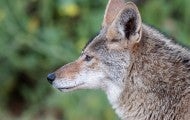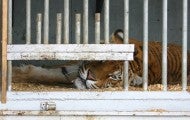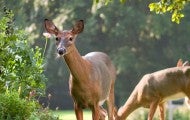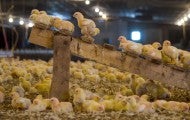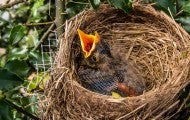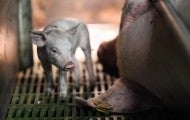In March, as people struggled to understand how the precursor of the virus that causes COVID-19 emerged from horseshoe bats in southern China and reached humans in the central city of Wuhan, Humane Society International policy specialist Peter Li fielded one question again and again: “Why do Chinese...
If you spot a coyote in your neighborhood, relax: Most coyotes avoid people. “Seeing a coyote out during the day is not a cause for alarm, especially in the spring and summer when they’re out looking for food for their pups,” says Lynsey White, HSUS director of humane wildlife conflict resolution...
Around the world, animals used for meat, eggs and dairy often suffer on factory farms where they are treated as units of production rather than living, feeling creatures. The Humane Society of the United States and Humane Society International present comprehensive reports on animal agribusiness and...

